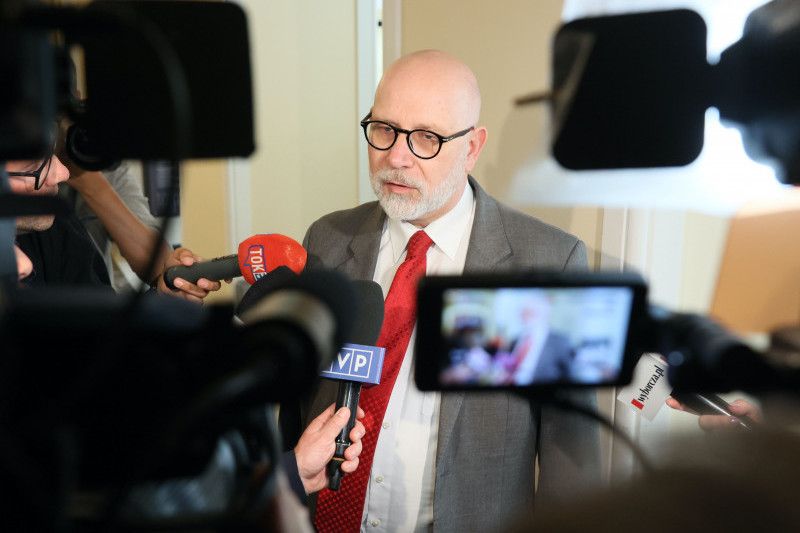Świrski Addresses Ownership Transparency and Media Penalties Before Parliamentary Committee

During a recent meeting of the parliamentary committee on culture and the media, National Broadcasting Council (KRRiT) Chairman Maciej Świrski raised concerns regarding the transparency of TVN’s ownership structure and discussed the Council’s role in imposing penalties on media outlets.
Concerns Over TVN’s Ownership Structure
Świrski voiced apprehensions about TVN, a Polish television network, withholding information on its ownership structure. The KRRiT has struggled to obtain vital details from TVN, leading to delayed reconcession processes for the network’s channels. In contrast, Polsat received a license extension expeditiously due to its transparent ownership structure as a listed company.
Świrski highlighted that while Polsat follows the stock market’s transparency rules, TVN has been labeling information regarding its ownership structure as a “company secret”. The Council members were also troubled by alleged media reports about ties between companies in TVN’s ownership consortium and Russia, which TVN has not clarified. Notably, Warner Bros. Discovery, part of TVN’s ownership, broadcasted its international stations in Russia but withdrew last year. The KRRiT is still investigating the ownership structure of TVN, with a focus on the chain of companies between TVN in Poland and Warner Bros. Discovery in the United States. The KRRiT emphasized that the probe aims to ensure that TVN S.A.’s capital composition aligns with the provisions of media law.
Penalties and Legal Proceedings Against Media
In the same parliamentary committee meeting, Maciej Świrski responded to allegations regarding the abuse of statutory powers in the context of media freedom. He stated that imposing penalties and conducting legal proceedings against media outlets are his duties, which he performs based on applicable law.
He provided the example of Tok FM, a radio station that was penalized for a journalist’s statement. He clarified that the penalty was not to revoke their license but to guide the radio station on the right path. Świrski insisted that the National Broadcasting Council must act independently and not succumb to social pressure or interest groups.
Regarding the license renewal application submitted by Tok FM, Świrski mentioned that it was being prolonged due to ongoing monitoring. He also faced questions from opposition deputies about why penalties and proceedings were predominantly imposed on independent media and not on state-owned media outlets such as Telewizja Polska and Polish Radio.
Both issues discussed in the meeting reflect the multifaceted responsibilities and challenges faced by the National Broadcasting Council in ensuring compliance with media laws and fostering transparency among media outlets in Poland.

